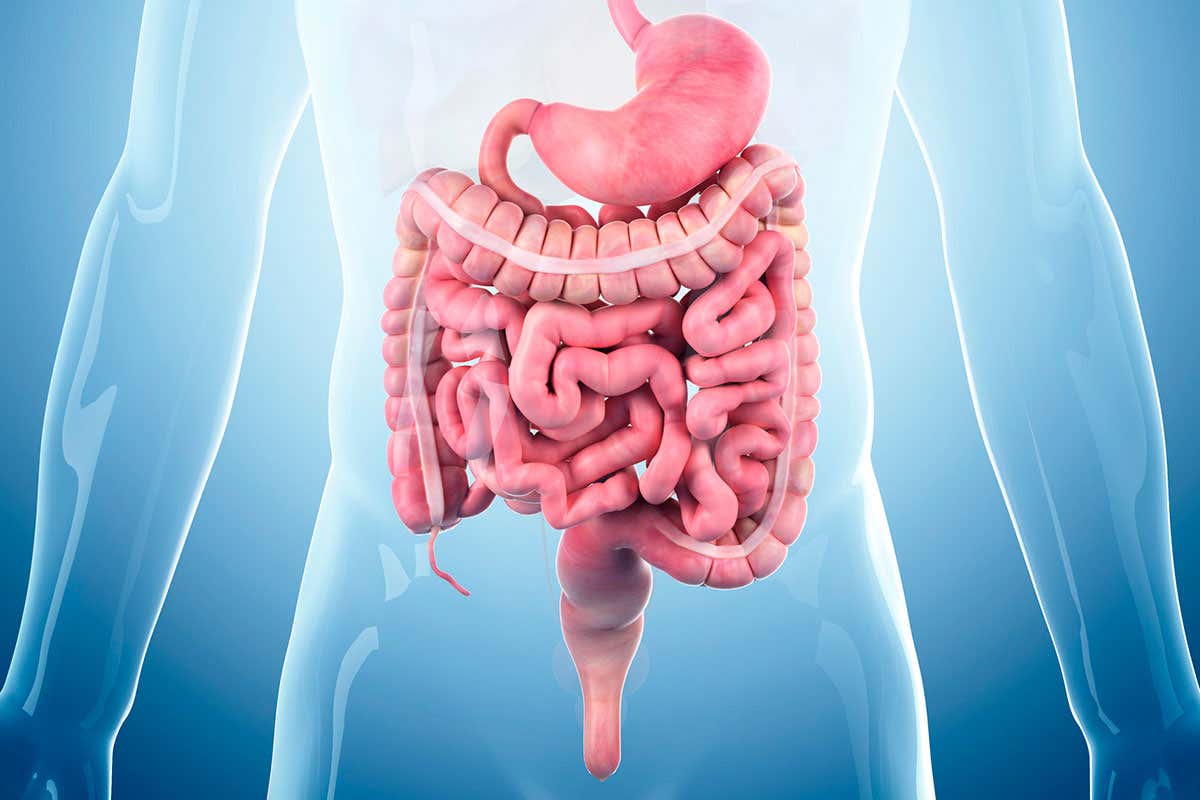What Happens If Irritable Bowel Syndrome Is Not Treated?
Irritable Bowel Syndrome, also known as IBS (Irritable Bowel Syndrome), is a common disease that we encounter with a rate of up to 20% in the adult age group. Irritable Bowel Syndrome is evaluated in the literature as an IDIOPATHIC (cause unknown) disease group. It is more common in women.
What are the Symptoms of Irritable Bowel Syndrome?
The most common findings in Irritable Bowel Syndrome are excessive intestinal gas, abdominal pain, intestinal discomfort, constipation, diarrhea, occasional periods of alternating constipation and diarrhea, and defecation in the form of goat dung (like olive grains). A significant portion of patients are described as having partial relief after defecation.
What is the Treatment for Irritable Bowel Syndrome?
Definitive treatment of Irritable Bowel Syndrome with medications has not been defined. Additionally, there is no specific diet for Irritable Bowel Syndrome. Not every diet provides relief for every patient. However, it is observed that fennel, mint and chamomile teas relieve patients. In Irritable Bowel Syndrome, it is observed that gluten (wheat, barley, etc.) and lactose (milk, cheese, etc.) products, as well as eggs, orange, lemon and black tea, trigger or increase complaints in many patients. All kinds of stress increases the symptoms of “Irritable Bowel Syndrome”. Sometimes, due to psychological disorders that we cannot resolve, it is important to get support from psychologists and/or psychiatrists, who are experts on the subject, in the treatment of the disease.
Why Are People With Irritable Bowel Syndrome “Always Unhappy”?
Abdominal pain, gas, diarrhea, constipation, insomnia, malnutrition, which are the symptoms of Irritable Bowel Syndrome, are the causes of tension and unhappiness. Another reason that is as important as these is that the protein called “ZONULIN” is consumed intensively to repair the uncontrolled passage from the intestine to the bloodstream in “Leaky Gut Syndrome”, which develops due to flora damage. Normally, 95% of the protein called Zonulin is used in the establishment and replacement of nerve conduction networks in our body. However, as too much zonulin is consumed in the intestines due to the “Leaky Gut Syndrome” that develops in the intestines, the needs of our nervous system cannot be met and accordingly, “PSYCHOLOGICAL DISORDERS” occur. In addition, our intestines are the areas where 70% of “ENDORPHINS”, the hormones that make us happy, are produced. Another source of UNHAPPINESS is the intestines that do not work properly and cannot produce enough endorphins.
What Causes Irritable Bowel Syndrome?
Irritable Bowel Syndrome disrupts sleep quality, causes chronic fatigue, tension, unhappiness, and decreases in work and academic success. Along with chronic fatigue, muscle-joint disorders and fibromyalgia are the inevitable result. Accordingly, if patients with “Irritable Bowel Syndrome” are not treated, they will live an UNHAPPY, UNRESTABLE, LOW WORK AND ACADEMIC SUCCESS, and a poor quality life.
Are There Factors That Trigger Irritable Bowel Syndrome?
In clinical studies, the majority of patients suffering from “Irritable Bowel Syndrome” live under stressful living conditions in cities and metropolises, are more exposed to environmental pollutants, consume more industrial foods (ready and processed foods), consume more genetically modified foods (especially milk). products (wheat and corn) and consume more products exposed to pesticides. We encounter “Irritable Bowel Syndrome” at a much lower rate in rural areas, where traditional agricultural methods are used, and in places far from industrial areas.
What is the “Relationship of Irritable Bowel Syndrome with Our Intestinal Flora”?
The environmental pollutants (air, water and food pollution) we are exposed to in the metropolises where we live in Irritable Bowel Syndrome are extremely harmful to intestinal FLORA health. In many studies, digestive system flora biodiversity has been observed to decrease in cities and metropolises. The richer our digestive system FLORA BIODIVERSITY is, the better the quality of digestive system functions. In the “Microbial Analysis of Stool” performed in Irritable Bowel Syndrome, it is observed that there are serious decreases in the biodiversity of the digestive system flora and selective permeability is impaired. Therefore, we recommend enriching the digestive system flora in cases of Irritable Bowel Syndrome. This enrichment can be possible by consuming natural foods, staying away from environmental pollutants as much as possible, not using unnecessary drugs (especially antibiotics, steroids, etc.), and staying away from alcohol and cigarettes. In addition to these, we also make a PROBIOTIC contribution by consuming foods such as yoghurt, kefir, pickles, vinegar, etc., which can be made at home using natural products.
What is “Flora Transplant” in Irritable Bowel Syndrome?
In patients with Irritable Bowel Syndrome, “Total Gastrointestinal Flora Transplantation” from at least one healthy donor in cases where a decrease in flora biodiversity is detected by performing “Microbial Analysis of Stool”, reduces the complaints significantly. Since the aim of “Total Gastrointestinal Flora Transplantation” is to increase the biodiversity of the digestive system, the more quality and multiple donor transplants are made, the more success will be achieved. If Flora Transplantation is performed from a quality donor pool, success rates are over 85%. FLORA TRANSPLANTATION performed in a single session does not require any additional treatment and can be a permanent solution for life, unless there are extraordinary circumstances.

